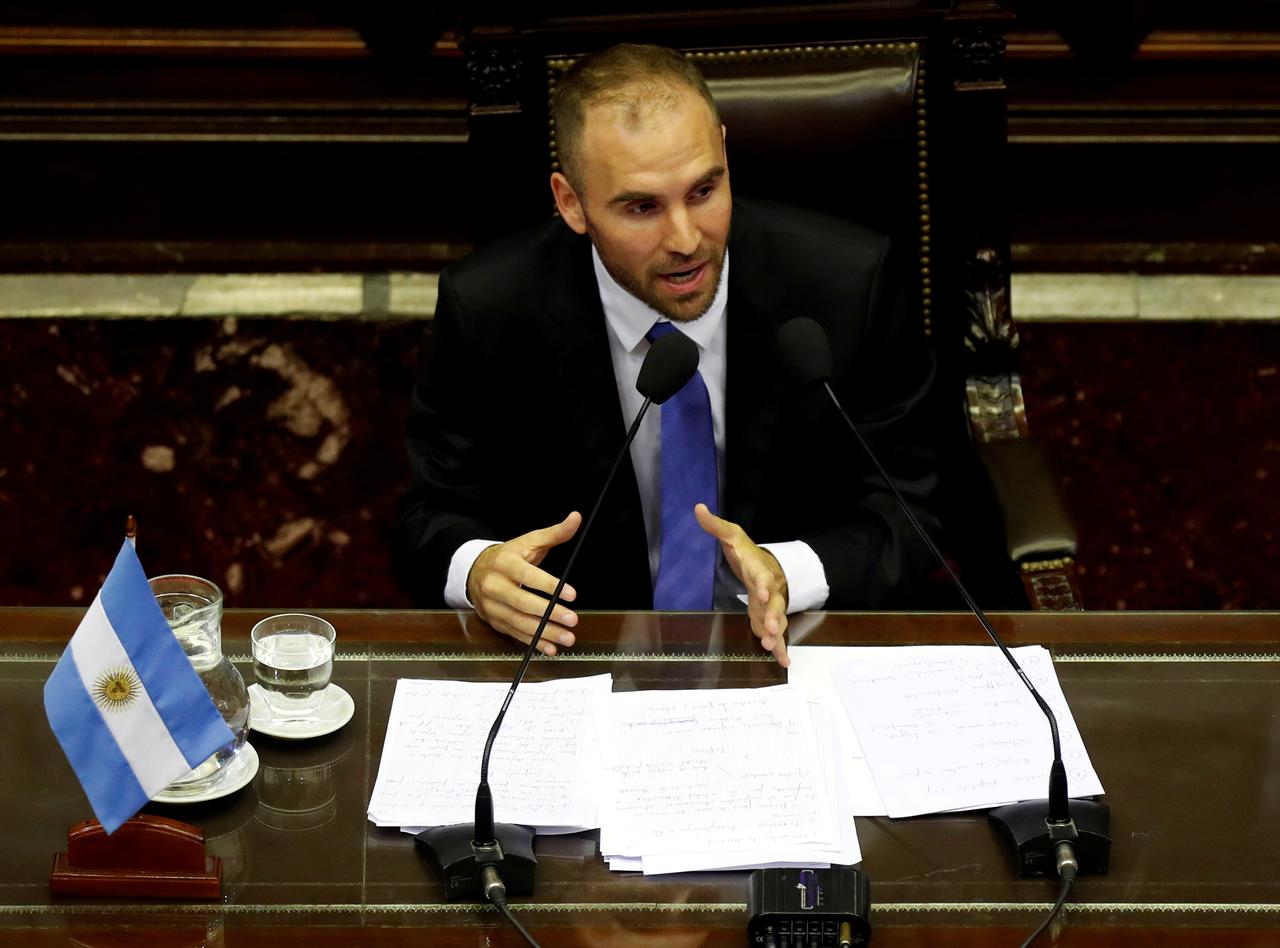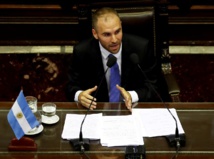Buenos Aires - Argentina is "flexible" in debt restructuring talks with its creditors, but there is still "quite a long way to go" before reaching a "sustainable" agreement, Economy Minister Martin Guzman says.
"Argentina is flexible concerning the combination of parameters that need to constitute the basis of an offer" to restructure 65 billion dollars in debt, Guzman said in an interview with dpa and three other news agencies.
However, he said, "we cannot make promises that we can't keep."
"An agreement only makes sense if it is an agreement that takes care of Argentina as a whole."
Buenos Aires stresses that debt repayments cannot be so high they threaten the state with bankruptcy and leave no room for the recessive economy to start growing again.
Creditors have rejected Argentina's offer of a three-year moratorium, a 62-per-cent cut in interest payments and a 5.4-per-cent reduction in the main payments.
Guzman said the government has not yet tabled a new proposal. The negotiations with creditors are currently dealing with "terms ... including the question of the structure of the offer."
Argentina is also in talks with the International Monetary Fund (IMF) to evaluate its payment capacity, according to the minister.
Guzman talked to dpa just days before the latest deadline for the debt negotiations expires on June 2, but he said they could continue beyond that date.
"From the moment [Argentina] amends its offer, there needs to be an additional 10-day period until the closing date of the offer."
The minister declined to say how long the negotiations could last. "It depends on the willingness of the parties to understand the restrictions the country is facing, and also on the capacity of the creditors to coordinate [their] differences."
"The creditors are very different, they have ... different preferences as to how to solve this," he pointed out.
More important than the duration of the talks is that "this needs to be solved well. Argentina will only take on an engagement that it can honour."
Buenos Aires is meanwhile discussing a possible new economic programme with the IMF, with which it is developing a "productive" relationship, Guzman said. The fund previously granted Argentina a bailout of 57 billion dollars, the biggest IMF credit line ever.
The IMF, however, is highly unpopular in Argentina, where critics have blamed it for austerity policies.
"The previous programme was created very quickly, it was a government decision, society was not involved," Guzman explained. This time, he promised, there will be "a very important social debate" on relations with the IMF.
When President Alberto Fernandez's leftist government took office in December, it found the country in "a deep macro-economic and debt crisis, with public finances in a bad shape," Guzman said.
Argentina has already gone into default eight times, most recently in 2001.
The country now needs to "rebuild trust" through "fiscal, monetary and exchange rate policies that are compatible with each other," Guzman said.
The other key element in creating trust is "restructuring the debt and taking it to levels that the country can handle."
The government wants to set the private and public sectors on an "inclusive" and "dynamic" development path and create "a different situation, which does not again make [Argentina] fall into a balance of payments crisis or debt crisis ... a situation with dramatic consequences for development."
The novel coronavirus pandemic has exacerbated Argentina's economic woes.
The country made health its priority and imposed "a very strict quarantine," Guzman explained.
At the same time, "we have taken ... economic measures to protect companies that fell into vulnerable situations in order to protect work, to protect production, to protect companies' know-how."
"We need to protect the capital that labour represents, the ability to produce, so that when we come out of the coronavirus [pandemic], Argentina will be able to recover well."
"Argentina is flexible concerning the combination of parameters that need to constitute the basis of an offer" to restructure 65 billion dollars in debt, Guzman said in an interview with dpa and three other news agencies.
However, he said, "we cannot make promises that we can't keep."
"An agreement only makes sense if it is an agreement that takes care of Argentina as a whole."
Buenos Aires stresses that debt repayments cannot be so high they threaten the state with bankruptcy and leave no room for the recessive economy to start growing again.
Creditors have rejected Argentina's offer of a three-year moratorium, a 62-per-cent cut in interest payments and a 5.4-per-cent reduction in the main payments.
Guzman said the government has not yet tabled a new proposal. The negotiations with creditors are currently dealing with "terms ... including the question of the structure of the offer."
Argentina is also in talks with the International Monetary Fund (IMF) to evaluate its payment capacity, according to the minister.
Guzman talked to dpa just days before the latest deadline for the debt negotiations expires on June 2, but he said they could continue beyond that date.
"From the moment [Argentina] amends its offer, there needs to be an additional 10-day period until the closing date of the offer."
The minister declined to say how long the negotiations could last. "It depends on the willingness of the parties to understand the restrictions the country is facing, and also on the capacity of the creditors to coordinate [their] differences."
"The creditors are very different, they have ... different preferences as to how to solve this," he pointed out.
More important than the duration of the talks is that "this needs to be solved well. Argentina will only take on an engagement that it can honour."
Buenos Aires is meanwhile discussing a possible new economic programme with the IMF, with which it is developing a "productive" relationship, Guzman said. The fund previously granted Argentina a bailout of 57 billion dollars, the biggest IMF credit line ever.
The IMF, however, is highly unpopular in Argentina, where critics have blamed it for austerity policies.
"The previous programme was created very quickly, it was a government decision, society was not involved," Guzman explained. This time, he promised, there will be "a very important social debate" on relations with the IMF.
When President Alberto Fernandez's leftist government took office in December, it found the country in "a deep macro-economic and debt crisis, with public finances in a bad shape," Guzman said.
Argentina has already gone into default eight times, most recently in 2001.
The country now needs to "rebuild trust" through "fiscal, monetary and exchange rate policies that are compatible with each other," Guzman said.
The other key element in creating trust is "restructuring the debt and taking it to levels that the country can handle."
The government wants to set the private and public sectors on an "inclusive" and "dynamic" development path and create "a different situation, which does not again make [Argentina] fall into a balance of payments crisis or debt crisis ... a situation with dramatic consequences for development."
The novel coronavirus pandemic has exacerbated Argentina's economic woes.
The country made health its priority and imposed "a very strict quarantine," Guzman explained.
At the same time, "we have taken ... economic measures to protect companies that fell into vulnerable situations in order to protect work, to protect production, to protect companies' know-how."
"We need to protect the capital that labour represents, the ability to produce, so that when we come out of the coronavirus [pandemic], Argentina will be able to recover well."









 Home
Home Politics
Politics











